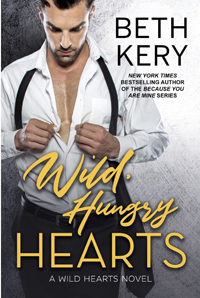Spending so much time both working and writing in the cave, I’m sometimes hopelessly out of it when it comes to what everyone is watching on television these days. My husband often saves me from complete ignorance by gifting me with an awesome movie or television collection. He struck gold again by bringing home the first season of Downton Abbey, the stunning Masterpiece production from Julian Fellowes (of Gosford Park fame).

In Downton Abbey, Fellowes once again highlights pre-World War II England, an ephemeral, gilded era that managed to hold on, however briefly, to both the ancient hierarchies of the aristocracy and the excitement of the technological age. It was a poignant, elegant period, and Fellowes is right to want to put it on the screen. For some reason, the era of the Titanic and electric lights shining upon people, furniture and houses that were created in the Victorian period is somehow magical—a little like the feeling I get from a steampunk. I’ve always had a love of this age, which is one of the many reasons I wrote Daring Time.
It was an era of confidence and enthusiasm, and yet there was a dark cloud growing on the horizon. (Perhaps that is the reason why the sinking of the Titanic, which is a significant plot element in Downton Abbey, is such a remembered, telling event of this age). The main character of Downtown Abbey is, of course, the austere, awesome estate and home itself. (I learned it’s actually Highclere Castle in Berkshire, England). Two different classes exist within the microcosm of Downton, two complete different social orders—one upstairs, and one downstairs—the ‘family’ and the servants. Fellowes’ genius, in both Gosford Park and Downton Abbey, is to equally highlight the downstairs and the upstairs world. By doing so, we see not only the fascinating workings of a ‘great’ house, but also hints of the social upheaval that was about to occur.

Downton Abbey is sexy, it’s smart and it’s truly a delight to the senses. The score is as gorgeous as some of the ‘upstairs’ lady’s dresses. (They change clothes three times a day, by the way, so the costume designer had her job cut out for her). The upstairs is ruled by the noble, kind Robert, Earl of Grantham (Hugh Bonneville) and his delightfully strong and outspoken American-heiress-wife Cora, Lady Grantham (Elizabeth McGovern). Cora and Robert had three girls, and were unable to provide the legally required male heir. The entailment requires that the entire estate, including the vast fortune Cora brought from America to the marriage, must go to a second and third cousin. However, when the two cousins are both killed upon the sinking of the Titanic, the vast estate legally goes to an unknown, middle-class solicitor whom the family doesn’t even know. It’s a stunning blow to the old family, and seeing how they work through the archaic law is fascinating stuff.
There is a ‘king and queen’ belowstairs as well as above, for the servants’ hierarchy is every bit as strict as the aristocracy’s. The ruler of this world is the butler, Mr. Carson, admirably played by Jim Carter, who I enjoyed in Cranford. Mr. Carson is fussy and strict, but as the story evolves, we see his rich, amusing history and his fair nature, and we come to care for him. The downstairs matriarch is the housekeeper Mrs. Hughes (Phyllis Logan)—”she who carries the keys”. Once again, here is a character representative of the whole story—richly drawn, strong and sympathetic. The servants follow the goings-on upstairs closer than a soap-opera addict follows her favorite stories, but their interest goes beyond entertainment to the core of their very identities. Mr. Carson’s identity and pride is largely tied into the position and status of the family. However, as the tides of social change begin to sweep over the servants, we also see those who are bitter toward those they serve, vindictive and manipulative.
Power is distributed in a shockingly hierarchical fashion,and it’s fascinating to see how the servants subtly influence the family to get a desired result or how they backbite and scheme to move one step up on the servant social ladder. Thomas, for instance, the decidedly nasty and reptilian ‘first’ footman, is envious and bitter that an outsider is brought in to be the Earl’s personal valet, which would have been a step up for him. He plots to get rid of the interloper, both subtly using family influence, but also overtly, by planting stolen goods on the new valet.

I enjoyed every moment of this well-acted, well-written and beautifully filmed saga about a time period infrequently portrayed in books and movies. If you love period pieces, gorgeous costumes and scenery and love a well-told tale, I recommend Downton Abbey wholeheartedly.
The last scene of the season came at an elegant garden party. The Earl of Grantham receives a telegram and announces to the entire assemblage that England is at war with Germany. Change is afoot. I cannot wait for the new season.
My Rating: 5 stars













